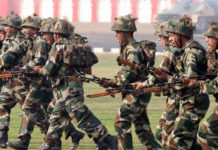Ominously anti-federal: On the Supreme Court’s judgment on Article 370 and J&K’s special status
In upholding the removal of Jammu and Kashmir’s special status and its downgrading, the Supreme Court of India has imperilled the rights of States and weakened the limits on the Union’s power
The Supreme Court of India’s verdict upholding the abrogation of Jammu and Kashmir’s special status under Article 370 of the Constitution represents not merely judicial deference, but a retreat from the Court’s known positions on federalism, democratic norms and the sanctity of legal processes. It is undoubtedly a political boost to the ruling BJP and an endorsement of its audacious move in August 2019 to strip Kashmir of its special status and bring it on a par with other States. However, it is also a verdict that legitimises the subversion of federal principles, fails to appreciate historical context and undermines constitutional procedure. The most potent attack on federal principles is the Court’s unconscionable conclusion that Parliament, while a State is under President’s Rule, can do any act, legislative or otherwise, and even one with irreversible consequences, on behalf of the State legislature. This alarming interpretation comes close to undermining a basic feature of the Constitution as enunciated by the Court itself and may have grave implications for the rights of States, permitting a range of hostile and irrevocable actions in the absence of an elected body. The government and its supporters have much to cheer about as the Constitution Bench has endorsed its stand and rejected strong arguments from the petitioners, especially the point that the government had acted in a mala fide manner by imposing President’s Rule preparatory to the intended abrogation of special status without the need to involve any elected representative from J&K.
The government had adopted a complicated process to give effect to the ruling BJP’s long-cherished ambition of removing the State’s special status. It had gone on to divide and downgrade it into two Union Territories (UT). It began with a Constitutional Order on August 5, 2019 applying the whole of the Constitution to J&K and changing some definitions so that the State’s Legislative Assembly could recommend the abrogation instead of its now-dissolved Constituent Assembly, as originally envisaged in Article 370(3). Ultimately, the Court ruled that parts of the August 5 order were unconstitutional as they, in effect, amounted to amending Article 370 itself, which was impermissible; but, in a peculiar twist, it held the consequential notification on August 6 declaring Article 370 as valid and that the President was empowered to do so even without the legal underpinnings of the previous day’s notification that sought to bolster the validity of the action. The President could remove the State’s special status without any recommendation.
















